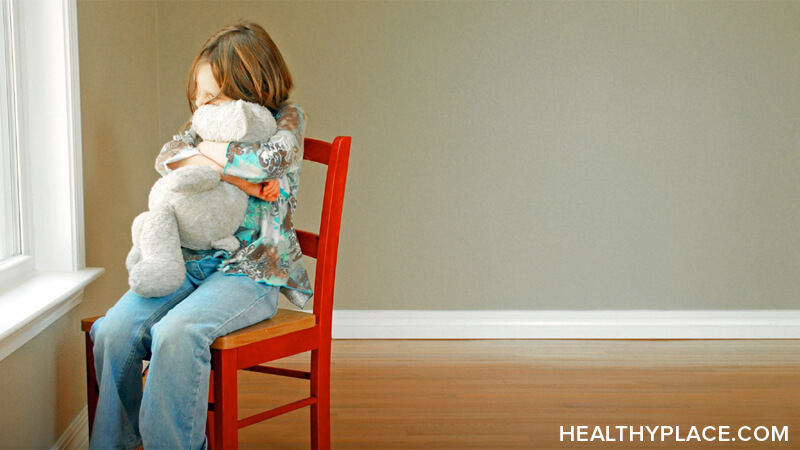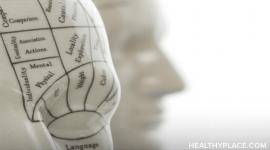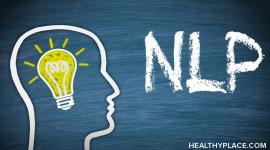Do Children Have Mental Health Problems Too?

Perhaps surprisingly, or maybe not so much, children can and do experience mental health problems. A fairly common misconception is that kids are too young to experience true stress and mental health difficulties. When one considers the definition of mental health, it becomes evident that it applies to all people, regardless of age or other factors; thus, mental health problems in children do exist.
Mental health can be defined as health and functioning as they relate to the brain and mind. Mental health is all-encompassing; it affects thoughts, feelings, and behaviors in someone's internal as well as external worlds. Mental health exists on a spectrum from optimum functioning to disability. Mental health applies to everyone, so given that kids are people, too, children can have mental health problems.
Child Mental Health Problems
Below you'll find a list of child mental health problems. Keep in mind that humans grow and develop throughout the lifespan, and different stages have their own unique mental health issues, both positive and negative. Childhood and adolescence is an intense period of growth and development full of constant change to which to adjust. Just being a kid can be quite stressful. Add to this all of the myriad difficulties kids face, and it's clear that children do indeed have mental health problems from time-to-time. This is just a partial list of mental health challenges kids of various ages face:
- anxiety, especially separation, social, and test anxieties
- learning and academic problems
- bullying
- anger
- navigating the complex social world of other kids and adults
- the effects of puberty
- moving
- changing schools
- divorce and step-families
- death of family or friends
- events in the news
- substance use
- sexual activity
- peer pressure
- college and career concerns
- sexual orientation and gender identity issues
- abuse
- poverty
- racial and cultural identity and issues
Child mental health is impacted by life stressors. One out of every 10 children experiences mental health problems significant enough to impair how they function in their lives at home, in school, and/or in the community at large, but despite this number, less than 20 percent of kids who need mental help actually receive it (Stagman & Cooper, 2010).
One reason for this is the belief that childhood and adolescent stress isn't that big of a deal and that kids will just outgrow any problems that exist. The reality is that like adults, kids can benefit greatly from mental health help and support. Helping kids build problem-management, social, and academic skills (and more) can help them handle stressors positively as well as build resilience so they stay mentally healthy despite problems and challenges.
Mental Health Disorders in Children
In addition to mental health distress, the National Alliance on Mental Illness (2015) reports that four million children and adolescents in the United States suffer from diagnosable mental disorders, also known as mental illness.
The Diagnostic and Statistical Manual of Mental Disorders, Fifth Edition (DSM-5), the authority on mental illness types, categories, symptoms, and related information published by the American Psychiatric Association contains two entire sections devoted to children's mental health disorders: neurodevelopmental disorders; disruptive, impulse-control, and conduct disorders. (read: Brain Disorders: Mental Disorders vs. Behavioral Disorders)
Neurodevelopmental disorders include:
- intellectual disabilities
- communication disorders
- autism spectrum disorder
- attention-deficit/hyperactivity disorder (ADHD)
- specific learning disorders
- motor disorders
Disruptive, impulse-control, and conduct disorders include:
- oppositional defiant disorder
- intermittent explosive disorder
- conduct disorder
- pyromania
- kleptomania
Kids can also experience other mental illness, such as mood and anxiety disorders. You can find more information in the article Mental Illness in Children: Types, Symptoms, Treatments.
Whether it's distress or a full-blown disorder, children can have mental health problems, just like adults. And also just like adults, children can benefit from treatment. The challenge is connecting kids who need mental health help with services. Communities and schools typically have mental health services, and family doctors and pediatricians do as well. Frequently, medical doctors assess problems and, if necessary, refer people to more specific mental health treatment doctors or counselors.
By attending to kids' successes as well as problems, adults can help enhance children's mental health and wellbeing. This helps them achieve success now and into their adulthood.
APA Reference
Peterson, T.
(2019, October 13). Do Children Have Mental Health Problems Too?, HealthyPlace. Retrieved
on 2026, January 13 from https://www.healthyplace.com/other-info/mental-illness-overview/do-children-have-mental-health-problems-too



